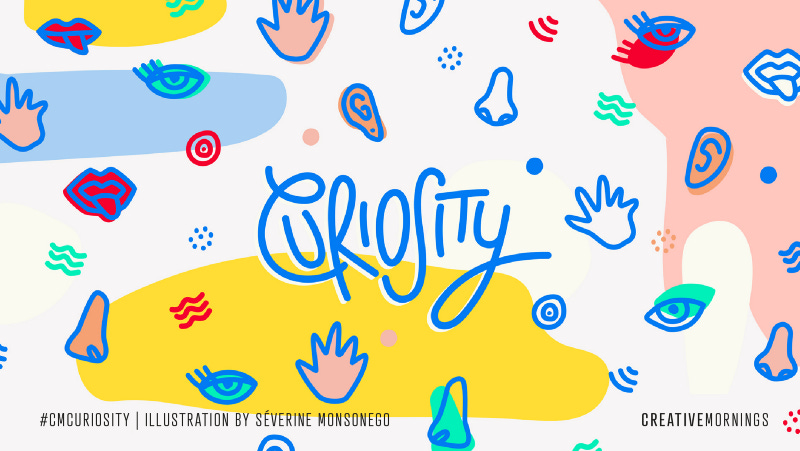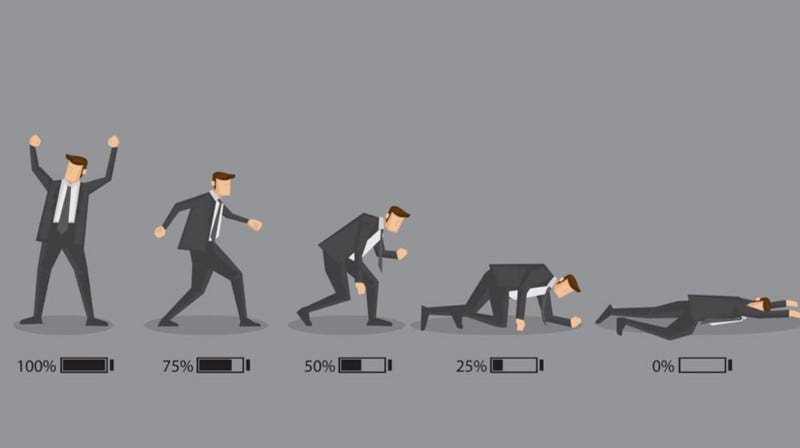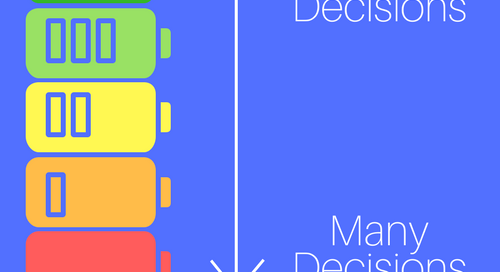Reflections after my first 3 months of W-2 life
My first 3 months of being employee in the backdrop of being self-employed for 10 years.
Despite working for ~10 years, I somehow eluded the 9–5 life.
I spent 3 years doing a lot of charity/non-profit work with churches, ICUs, and the homeless.
I spent 4 years flipping houses.
I spent 2.5 years building a company to teach soft skills to teenagers.
Yes, I was working, but I was never beholden to a schedule from a boss or manager.
I worked when I wanted, made my own schedule, made sure I drove in traffic as little as possible, and was ultimately content to live life and do “work” on my own terms.
And now, as I write this, I’ve wrapped up 3 months at my 9–5 — officially “reporting” to someone, having a narrowed set of responsibilities, and of course, the consistent paycheck — I find myself telling friends, “I should have gotten a job sooner.”
¯\_(ツ)_/¯ 🤔😅
Part of it is the fact that I really do have a kick-ass job…
️I have a team I enjoy working with
It’s an environment where I can be my full self
I’m doing work comes naturally to me and am good a️t
I’m solving a problem that is meaningful to me
I don’t have to worry about my paycheck
It’s only 3 months, but I’ve been engaged everyday.
Time will tell how sustainable it is, but for the time being, I’m optimistic/excited!
😍🤩😎
That’s the overall update, but there’s a handful of reflections I had on top of it.
➖ Lifestyle Impact of a 9–5 ➖
The forcing function of showing up every day at the same time/place makes it incredibly easy to build HABITS.
I predictably sleep.
I predictably wake up.
I predictably drive to work.
I predictably get off work.
The beauty of habits is that it means I make fewer decisions.
Less decision fatigue means more energy.

More energy means I can still do more things after I get off work. I have space to help plan events, think about random ideas, catch up with old friends and meet new people.
This was rarely true as a founder.
More energy makes me feel more spacious.
Feeling more spacious makes me feel happier.
😎😊🙃😯😍😁😛🔥
➖ Mental/Emotional Impact of a 9–5 ➖
The most significant thing that changes when you go from founder to employee: The # of things you are *exclusively* responsible for.
As a founder, I:
Felt like I was always winging it, over my head
Always had fires that I needed to be putting out no matter how much I did
Never felt “on top of it”
Brought work “home” with me when I was driving, showering, and as I tried to fall asleep
I always felt “behind” and as if I never did enough despite work consuming the overwhelming majority of my headspace.
In terms of company direction, I rarely felt “sure.” Strategically, I almost always had to settle for a good “general direction” rather than “knowing.” I was usually only 40–60% confident about most decisions. I was only “sure” about my ability to get less wrong over time.
It is hard to understate the mental and emotional toll of constant uncertainty combined with the guilt of always feeling like you’ve not done enough even though you feel worked to the bone.

Some consequences of this:
I spent less time with friends/family
I had less space to be the kind of Significant Other that I wanted to be
Most of my mental vacations happened when I slept
Little room to explore ideas/skills that were outside of building the company
That just sounds depressing as I recount it.
😵🤕🤢😰😓🥵☹️😐😑
Contrast that to being an employee.
As an employee, I:
️Feel quite capable to do my job
Rarely have an overwhelming amount of things on my plate
Generally feel “on top of it”
️Stop thinking about work after I leave the office
I’m confident about my decisions 80–90% of the time. I have a clear “end” to my work day. I finish up the tasks for the day and I feel “complete” and I have psychological permission from myself (and my boss) to NOT think about any other kind of work until I get into the office the next day.
What happens as a result:
Sometimes when I’m driving home, I decide to call friends I haven’t heard from in a while
I attend or host an event 3–4 evenings each week
It’s 9pm, and my mind wanders freely wherever it leads, guilt-fre️e
I’ve been able to follow my curiosity far more freely than when I was a founder
I can sit around and do nothing on a Saturday, and then spontaneously go to an event with friends if I feel compelled to
That sounds… so much more exciting.

In other words… I feel 10x more spacious to be spontaneous, support friends, think long term and plan, and to explore my curiosities.
💪🔥🤩🤯😱🧐🥳
It is hard to overstate how much less stressed/overwhelmed I am on a consistent basis. It’s also no surprise to me how founder burnout is such a big issue.
🤨🤔
➖ Financial Impact of a 9–5 ➖
I know exactly how much I make every two weeks.
Unless I get fired or completely fail at my job, I can easily project out multiple years ahead in terms of my financial situation.
As a result, I can also easily plan/save for big expenses, I can invest, I can project out multiple decades to help me think about how hard I want to push myself for future benefits. I didn’t feel like I could do this as a founder.
As a founder, everything was up in the air. No guarantees. It made it difficult to plan very far into the future. This, undoubtedly impacted the relationship I was in and contributed — far more than ever imagined it would — to its end. It’s a story for another time.
I make… more than twice the amount I made as a founder… and I have benefits!?
Every financial decision I’ve made in the last 10 years, I always took a pause before I made any purchase. I never made enough for me to stop thinking about how much a purchase would cost me. Each time I ate out, I had to consciously choose to incur the cost knowing I could have cooked instead.
Now? It barely crosses my mind.
This, of course, also has had a huge positive impact on my stress levels.
😁🤑😁
➖ Misc Thoughts ➖
Entrepreneurship — Wish I Got Help Sooner
Entrepreneurship is really hard. It is no solo act. Always look for help, support, guidance.
I didn’t do this as much as I should have and I did it much later than I could have.
Joining an incubator or accelerator can have a HUGE impact on company trajectory. I would highly, highly recommend this especially for new founders.
If you’ve not been successful before, the wisest thing you can do is surround yourself with people who have done it before.
The team I am on has the benefit of YC, Accel, experienced and committed angel investors, and coaches we can tap into regularly.
Entrepreneurship — Founder Mental Health is a Challenge
Now that I’m no longer a founder, it’s fascinating watching the founders who I work for.
Fascinating because I can understand many of the challenges they go through.
Everything I mentioned above about the mental/emotional toll of being a founder, I see mirrored in their experience.
So now, I find myself in a surprising position to be able to support the founders in exactly the way I wish someone would have supported me when I was a founder.
It makes me feel lucky, relieved, proud, and fortunate that my founder experience didn’t go to waste in finding a 9–5. But being able to see the problem as an outsider makes me frustrated with the lack of resources to support founders.
One dynamic I experienced myself:
Founding a company is super stressful. But often, it just creates more stress to try to explain to someone who is *not* a founder, the day to day challenges/stresses.
So often, it seemed easier to just deal with the problem by myself rather than exert the effort to 1) find someone who can deeply understand my challenge and ask for support or 2) try to get someone up to speed so they could help me. Why? Because I have 3 other fires that seem more urgent, so I’d go do that instead.
This created some level of isolation/loneliness for me, contributed to some level of anxiety and founder burnout.

On a broad level, it doesn’t seem clear to me how a scalable solution could be implemented to address founder burnout/mental health, but I’ve implemented a few stop-gaps.
2 concrete things I do to help support my founders:
Offering dedicated time to think through high level strategy (3 hours per week) — this is helpful because as a founder, there’s always 10 important things to do and strategy rarely gets the space it needs
Checking in on their stress levels, listening, and reflecting my founder experiences back to them so they feel like they are 1) not crazy 2) doing a great job and 3) I believe and support them — this is helpful because few people understand how hard it is, it’s a thankless job, and it’s easy to think like you’re doing a poor job
9–5 — There are SO MANY MEETINGS
The amount of time I spend deeply working on a problem has been cut drastically.
It’s crazy to me how easily a whole day can fill up with meetings.
I’m just surprised by how an entire morning of meetings can wipe out half a day of productivity.
9–5 — Days feel shorter
I can see how easy it is to let years fly by.
Having a job yes, can create habits, but on the flip-side, it makes it very easy to coast.
Despite only 3 months, I can see how years might just fly by and I wonder how “life” just slipped past me.
It would be easy to clock out at 5pm every day, go home, veg out, and then rinse, wash, repeat.
Part of me wonders what kind of society we would live in if there was only a 32-hour work week? Or a 25 hour work week?
How much productivity would we lose? How much happiness would we gain? Would that be worth it?
The biggest thing that has helped counteract this dynamic is by taking consistent time to reflect and digest (usually in the form of writing or talking to friends who welcome these kinds of conversations). This has a way of slowing down time that makes life seem to pass by a little more slowly.
9–5 — I have no idea how people have time to be parents
Based on my experience of 9–5 life. I am completely flabbergasted by the idea of a working parent — someone who works a 9–5 job and is also a parent.
I can hardly wrap my mind around it. And if I think about how there are SINGLE parents out there, my god.
Being a parent in modern day society seems like a tremendous sacrifice.
Right now, I feel like I have my hands full with 1) career 2) creative exploration and pursuits 3) time for myself (mental, physical, emotional) 4) friends.
When I think about how I would make time for a Significant Other, let alone kids, it makes me think much more deeply about what I would want to have in place before I decide to have kids (FIRE).
It makes me resonate more deeply with Michelle Obama’s quote:
You can have it all, but oftentimes it’s hard to get it all at the same time.
—
If I were to summarize each major point in one sentence:
Having a job creates cadence/habits and spaciousness for me
The change of responsibilities in going from Founder to Employee has reduced my stress by at least 10x
Financial predictability also reduces my decision fatigue and stress
Having access to good help/advice is an incredibly powerful catalyst, especially for first time founders
A scaleable solution for founder mental health seems unsolved
Why are there so many meetings in “work”?
Reflecting and digesting is a useful tool to “slow down” time
️The intersection of W-2 life and parenting seems daunting
What did you resonate most with? What would you like me to write more about?

